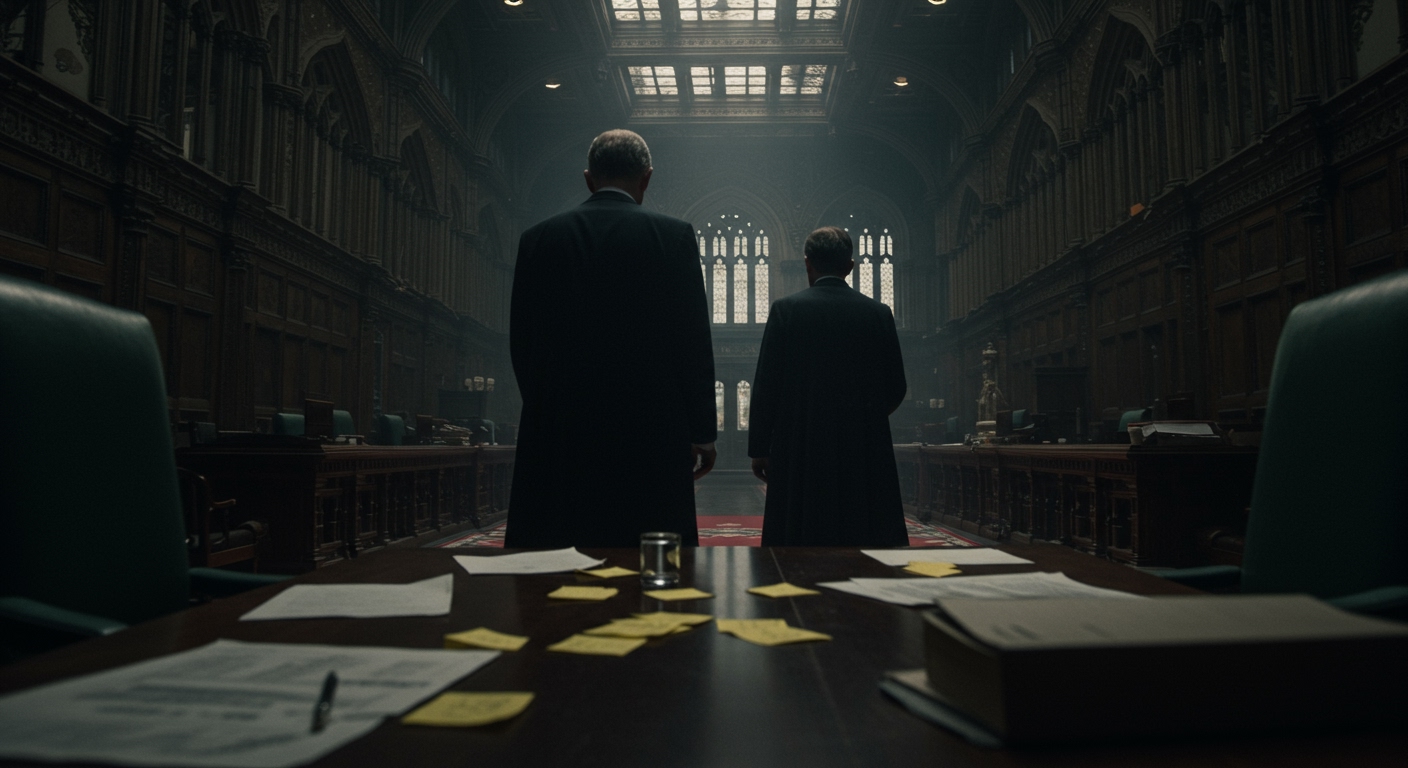London, UK – Prime Minister Keir Starmer’s office affirmed on Wednesday, July 2, 2025, that Treasury chief Rachel Reeves retains his full confidence and remains secure in her critical position. The declaration follows a period of intense speculation surrounding Reeves’ future, fueled by a series of government policy reversals that have significantly impacted her planned revenue-raising strategies.
Speculation reached a peak after Ms. Reeves appeared visibly upset in the House of Commons earlier on Wednesday. Observers present during the weekly Prime Minister’s Questions session noted that the Chancellor of the Exchequer looked notably exhausted and distressed. This public display came the day after an embarrassing government reversal on proposed welfare spending cuts, a key fiscal measure spearheaded by the Treasury.
Welfare Bill Reversal and Rebel Dissension
The controversial welfare bill, aimed at generating substantial savings, managed to navigate its initial stage in the House of Commons this week only after the government yielded to pressure. Facing significant opposition from within their own ranks, the Labour Party leadership appeased a faction of Labour Party rebels by agreeing to soften and delay proposed cuts to welfare benefits specifically targeted at disabled individuals.
Despite these concessions, the passage was far from smooth. A considerable number of Labour lawmakers, specifically 49 of them, defied the party line and voted against the bill. This level of internal dissent, even after policy adjustments, underscores the political fragility surrounding the government’s fiscal agenda and the challenge Starmer faces in maintaining party unity on difficult economic measures.
Political Fallout for Starmer
The outcome of the welfare bill vote and the preceding U-turn are widely perceived as a significant setback for Keir Starmer’s authority. The timing is particularly sensitive as the Prime Minister approaches the one-year anniversary of his election on Friday, July 4, 2025. The government is already grappling with challenges from a sluggish economy and low approval ratings, making this public display of internal division and policy instability particularly damaging to his standing.
The incident highlights the delicate balance Starmer must strike between implementing necessary, albeit unpopular, fiscal reforms and managing the expectations and pressures from within his own party and the wider electorate. The perception of a government struggling with its legislative program could further erode public confidence as the first year in office concludes.
Fiscal Consequences and Future Tax Hikes
Beyond the political implications, the U-turns have tangible fiscal consequences. The backtracking on the welfare cuts, even with partial passage of the bill, leaves the Treasury with less funding than originally anticipated for public services in the coming year. The initial welfare reforms were ambitiously projected to save £5 billion ($7 billion) annually, a sum intended to bolster the public finances.
The financial impact after the recent changes and concessions is currently uncertain, but it is clear the Treasury will not realize the full intended savings. This shortfall increases the likelihood of future tax increases across the board. This prospect directly conflicts with the government’s prior promise not to raise key levies such as income tax and sales tax, presenting a significant political and economic dilemma for Ms. Reeves and the government as they seek to balance the budget and fund public services.
Prior Fiscal Setback
The welfare bill concession is not an isolated incident. It follows a prior significant decision made in May, when the government was forced to abandon a plan to end winter home heating subsidies for millions of retirees. This measure, intended to generate substantial revenue, was another key part of Ms. Reeves’ strategy to boost the Treasury’s coffers without resorting to broad tax increases. Its abandonment also contributed to the current fiscal pressures.
The pattern of proposing measures to raise revenue or cut spending, only to reverse course under pressure, raises questions about the government’s policy formulation process and its ability to implement difficult fiscal decisions. These reversals cumulatively impact the Treasury’s financial position and complicate future budgetary planning.
Reeves’ Continued Role
Despite the visible strain and the challenges her department faces due to these policy shifts, Prime Minister Starmer’s office has unequivocally stated that Rachel Reeves remains securely in her role as Treasury chief. The statement on Wednesday, July 2, 2025, serves as a clear message of support from the Prime Minister, aiming to quell speculation about her immediate future.
However, the political and fiscal headwinds facing Ms. Reeves and the government remain formidable. Navigating the need for fiscal consolidation while managing political dissent and public expectations will be a defining challenge as the Starmer administration moves past its one-year mark and confronts the economic realities ahead. The events of this week underscore the complexities inherent in delivering on fiscal promises amidst political pressures and economic constraints.





